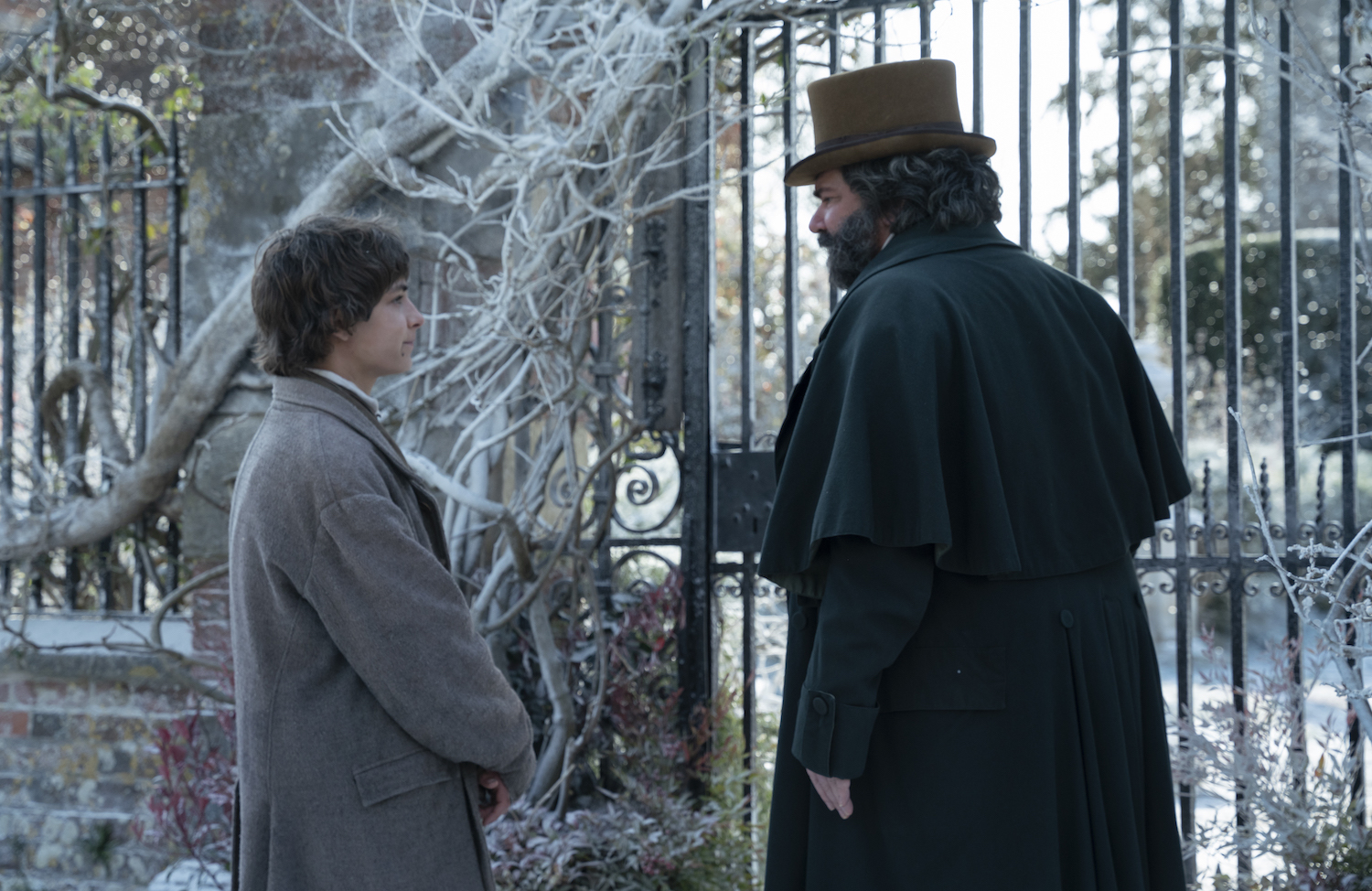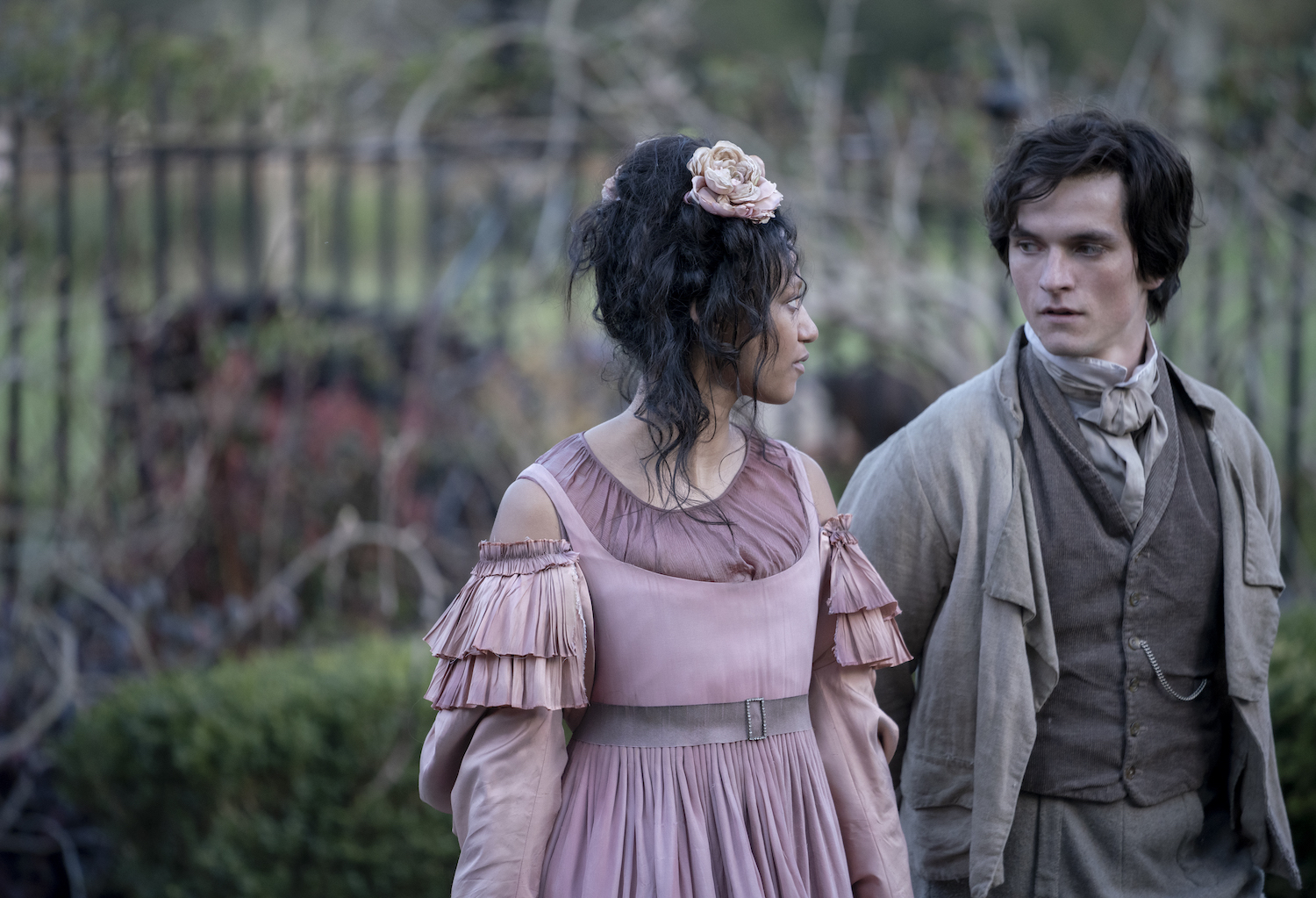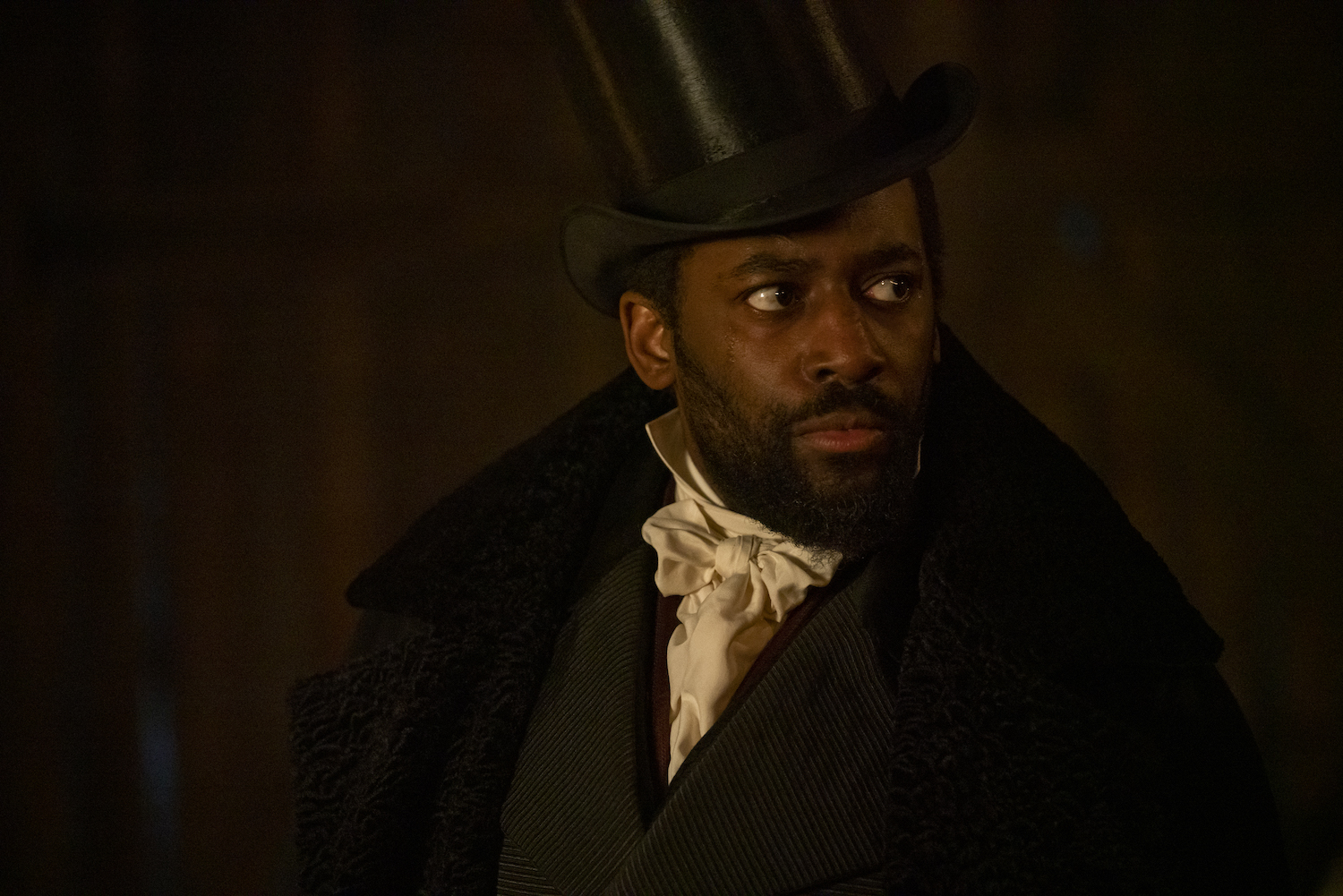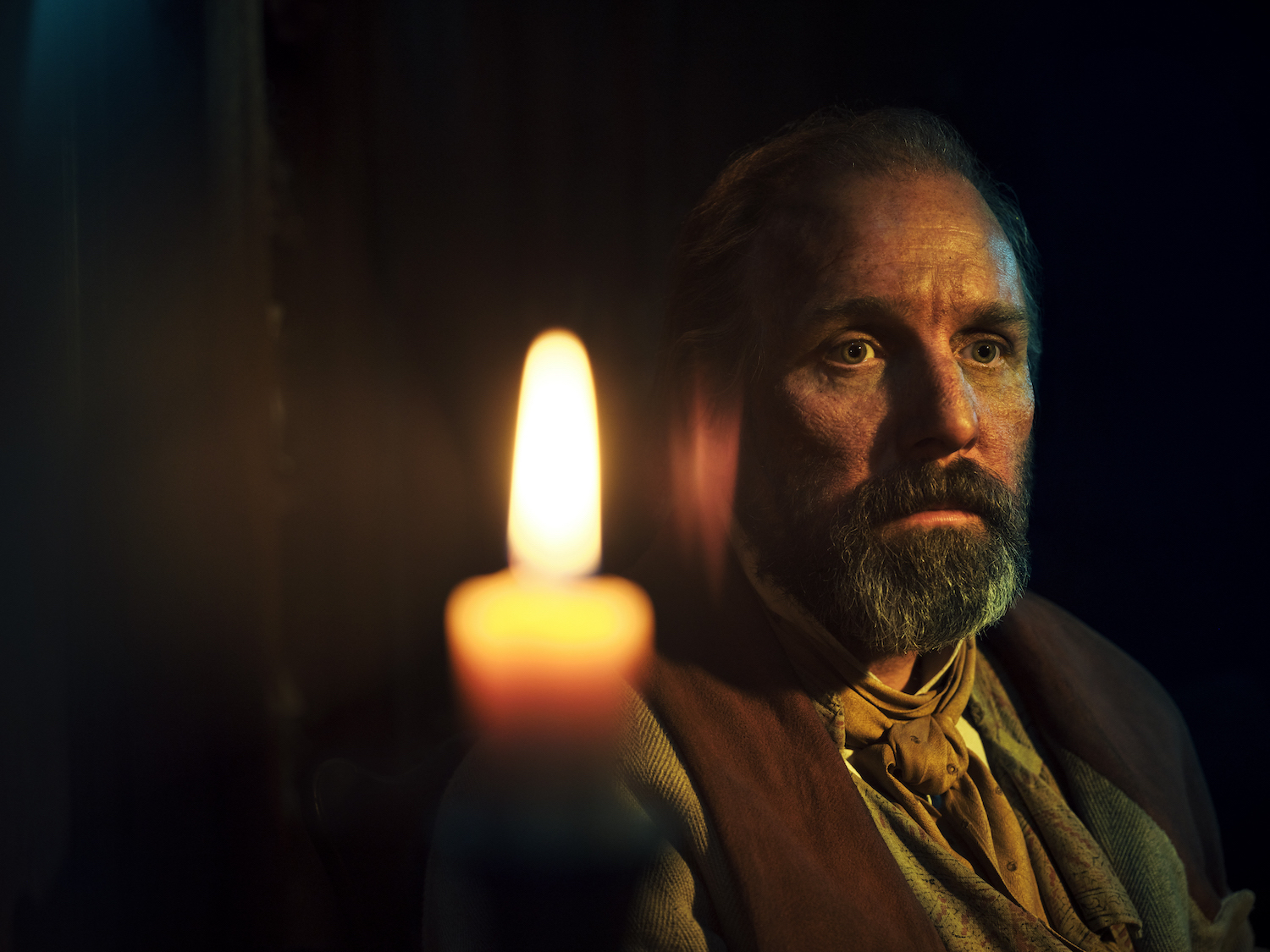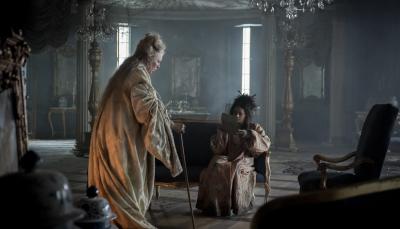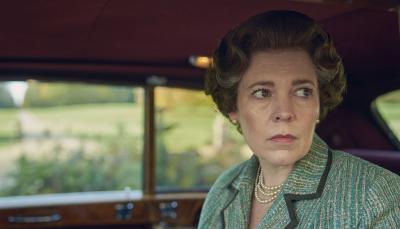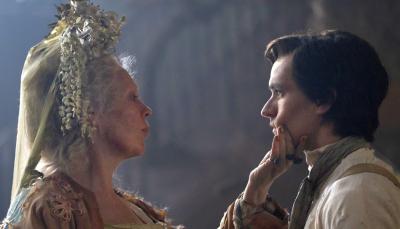Decoding Dickens: Hulu’s 'Great Expectations' Is Weird & Wonderful
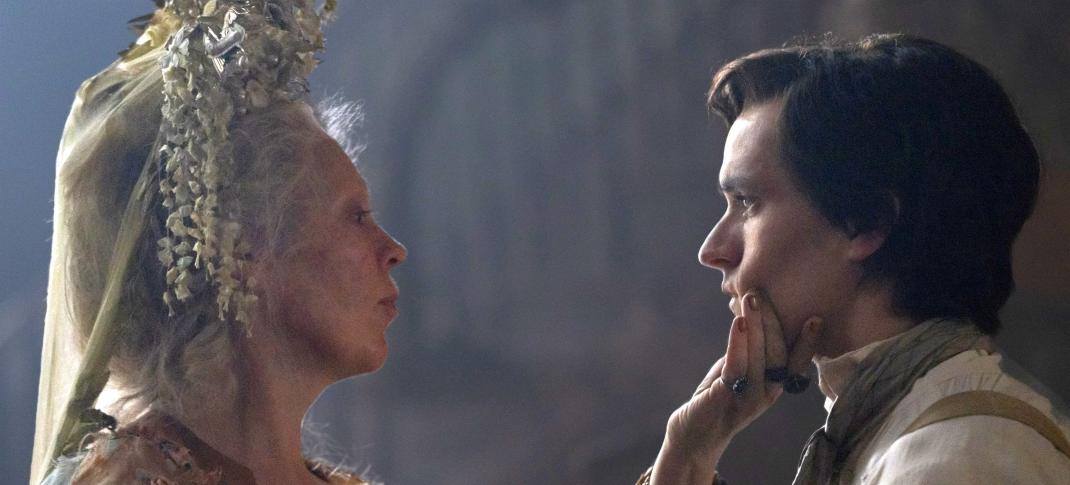
Olivia Colman as Miss Havisham and Fionn Whitehead as Pip in 'Great Expectations'
BBC/FX
Jaggers: There are many rather astonishing elements to this story.
In 2019, the BBC and FX brought us writer Stephen Knight's (Peaky Blinders) dark and dire interpretation of A Christmas Carol. If you thought Charles Dickens couldn’t get any grimmer or weirder, you were wrong. His follow up, the new FX/BBC production of Great Expectations, probably isn’t for Dickens purists, and Knight’s brand includes casual expletives, explicit violence, and suicide. If, however, this is your cup of tea, Knight, director Brady Hood and an accomplished cast tackle Dickens’ masterpiece with skill and bravado.
Great Expectations was serialized in 1860, and published in book form in 1861, toward the end of Dickens’ life. Set in the 1830’s, it tells the story of Pip (Tom Sweet as a child, as an adult by Fionn Whitehead) an orphan who lives with his sister Sara Gargery (Hayley Squires) and her blacksmith husband Joe (Owen McDonnell). Pip works in the forge; however, in a break from Dickens’ original, has aspirations that seem unlikely to be fulfilled. He reads; he has a wide vocabulary, and the production’s backstory for Pip and Sara is that they have come down in the world, which makes perfect sense.
Sara, however, is abusive nearly all the time, although she allows Joe, one of Dickens’ sublimely loving characters, to tease her into good humor. The family lives in Kent near the Thames Estuary, a bleak and chilling landscape, and Pip watches the ships pass on their way to and from London, or on their way to Australia with convicts aboard. The whole community is familiar with hearing the cannon fire that announces a convict’s escape.
On a chillingly cold Christmas Eve, Magwitch (Johnny Harris), a desperate and violent convict, escapes from a prison ship, as does his former partner and now bitter enemy Compeyson (Trystan Gravelle). Pip encounters Magwitch when visiting the graves of his parents and dead siblings in the churchyard. It’s one of the iconic scenes in any film/TV adaptation, and this version is appropriately terrifying and disturbing. Pip agrees to help him escape, not that he has much choice, returning home to steal a file (to remove Magwitch’s chains) and some of the delicacies Sara has prepared for Christmas Day.
Just as Pip’s family and their guests are sitting down to Christmas dinner, soldiers summon all the men in the house to join in their search, Pip included. They find Magwitch and Compeyson fighting, covered in mud, barely human in appearance or behavior. When he’s arrested, Magwitch shows a generosity we did not expect, claiming that he broke into the forge for the file and the food, thus saving Pip from any blame. Magwitch never forgets Pip’s kindness, and their interaction starts the story.
But Dickens skillfully distracts us with Pip’s visit to another chilling and icy environment inhabited by cruel bullies –– Miss Havisham (Olivia Colman) and her adopted daughter Estella (Chloe Lea as a child, as an adult by Shalom Brune-Franklin). Satis House is frozen to the exact time of Miss Havisham’s abandonment at the altar; “Welcome to winter,” Estella says to Pip on his first visit. Colman wears ragged wedding finery and a fabulous headdress in a Chinoiserie style, reminding us that her fortune derives from opium, indigo, and slavery.
This is where the series shines, mapping out the cruelty of the British Empire and the class system that sustains it. That cruelty is necessary to become a gentleman, a mover, and a shaker of the Empire, and Pip is complicit. His exploitation by local fixer Bumblechook, and Miss Havisham, is uncomfortably close to abusive servitude, while everyone benefits financially from the arrangement. Pip knows Joe makes chains, which may or may not be used on slaves, although ironically, he doesn’t mind using them on prisoners. When Miss Havisham hands him a bag of opium to finance new clothes, he goes right ahead and sells it.
Colman is magnificent, cajoling, cruel, and unpredictable. She and Estella teach Pip the external characteristics of a gentleman, manners, dancing, French, and how to present himself. This is Estella’s training ground, with Pip as her victim, and time and again, he denies that he is falling in love with her. Toward the end of this bizarre apprenticeship, it becomes even more surreal when Miss Havisham announces the last item on the agenda –– sex. To that purpose, Pip, at the age of eighteen, is shown into a room where he meets the obliging Mrs. Gibbons, who he knows from church and who’s taken it upon herself to initiate local young men into sex.
It’s a final lesson for him in the role of a gentleman, to use those who are socially below him. “Have fun!” Miss Havisham trills as she and Estella leave the room. Dickens didn’t write that scene, nor did he have Sara flogging Mr. Bumblechook in a fully-fledged BDSM scene while Joe, shirt off, hammers away industriously in the forge. Is it a fantasy? Does it signify Sara’s anger at being forced into a submissive role by men like Bumblechook or the sweet-tempered Joe? Creative or in poor taste, you decide.
Pip has one friend, schoolteacher Biddy (Laurie Ogden), who he pays to help him learn French, although she disapproves of his aspirations to rise in the world. She tells him he's "clever, odd, and completely blind." She knows he will drop her eventually, but far from becoming one of Dickens' long-suffering heroines, Biddy becomes politically active as a Chartist.
His apprenticeship finished, Pip declares his love to Estella, who turns him down as she has been trained to do. He has the outward appearance of a gentleman but no income to sustain the illusion until, in a burst of Gothic drama, Miss Havisham's lawyer, the powerful and charismatic Jaggers (Ashley Thomas), arrives to whisk him off to London, and a new life, thanks to an anonymous benefactor, whose name shall never be revealed: "I will happily throw this boy to the wild beasts of this city, who will consume his youth as they order fresh oysters before throwing the empty shell into the river from whence it came."
He inducts Pip into his dealings, blackmail and forgery. His latest venture is shipping insurance, drawing on Pip's knowledge of the Thames and its vessels and his ability to talk shop with shipowners. He offers policies to ships carrying illegal cargo (gunpowder and/or slaves). The beauty of the scheme is he'll never have to pay out, as the cargo is not recognized by law. Pip and Jaggers partner with a not-too-bright City merchant, Drummond, who made a fortune importing nutmegs and is now engaged to Estella. To no one's surprise, Magwitch and Compeyson are back in London, which can only mean trouble and explanations.
Meanwhile, Pip enters a downward spiral of opium and excess, until he receives a visit from Joe, worried Pip doesn’t write. Pip rejects him cruelly. But Joe honestly believes everyone is capable and deserving of love; as he says at the beginning of the series, speaking about Sara’s cooking, and meaning Sara herself: “Untangle the ingredients and you’ll find love in there.” That’s certainly a sentiment Dickens embraced. It’s at the heart of the book, in Joe and Biddy’s unconditional love for Pip, and I’d suggest, in this interpretation, Jaggers’ brooding control of Pip represents something (however twisted) that approaches love.
Pip also wins the affection of Herbert, his London roomie, and Jaggers’ eccentric assistant Wemmick (Rudi Dharmalingam), who protects Pip from danger when everything falls apart. The series gets so much right, particularly in the small details — the tremor in the sauceboat when the cannon fires while Pip and his family are at dinner, the careful replication of Pip’s family tombstones. The series’ emphasis on the Thames, the ships Pip watched as a child, the gloomy marshes of the Estuary, and Pip’s love for taking a boat out to row ring true. Dickens’ Our Mutual Friend (his last completed work) would define the Thames as a character and a setting.
The series attempts to show a gritty and dark London via lingering shots of horse manure, is more comic than anything. Besides, Dickens knew the darkness in the city wasn’t just because of the fog. It was in the souls of the rich and their exploitation of those below them as they plundered the Empire for even more riches. At heart, this Great Expectations honors Dickens, whatever creative liberties it takes, and you won’t find a better cast.
The first two episodes of Great Expectations debut on BBC One and Hulu on Sunday, March 26, 2023, with the remaining four episodes released weekly.

